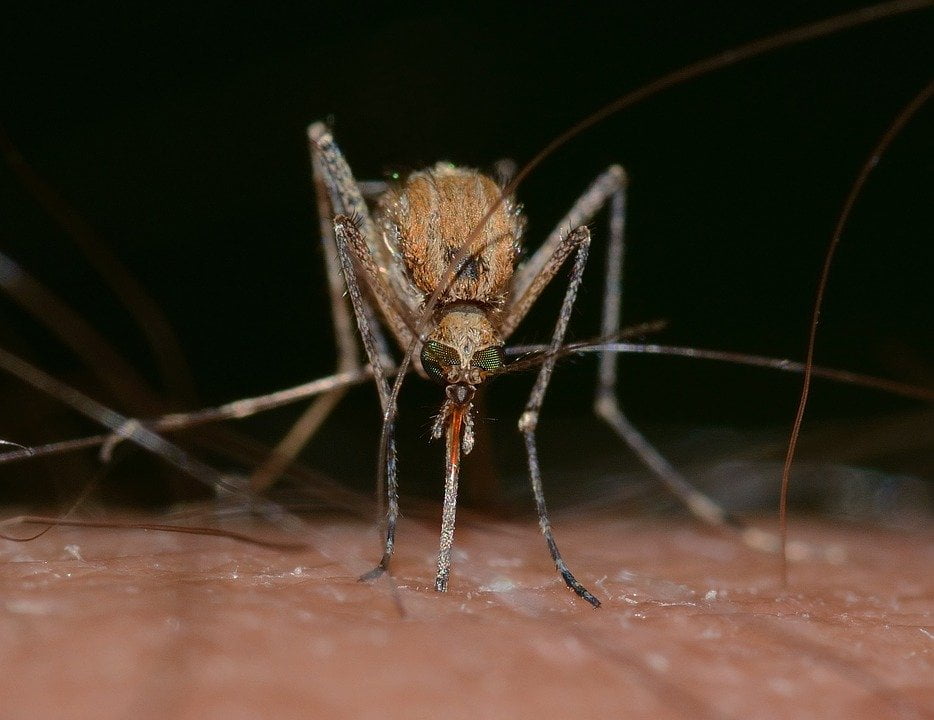When you come to a forest or park with a group of friends, you may notice that some are constantly brushing aside blood-sucking insects, while the mosquitoes do not seem to notice others. There is an opinion that the “appetiteness” for mosquitoes is determined by their blood type. We decided to check whether this theory has a scientific basis.
Mosquito bites can be not only unpleasant, but also dangerous. Insects carry diseases such as malaria, yellow fever, Zika fever, dengue fever, heartworm disease. Because of this, by calculations scientists, throughout the history of mankind, mosquitoes have caused the death of almost half of the 108 billion people who lived on our planet. They write about the relationship between a person’s blood type and their attractiveness to mosquitoes Lenta.ru, Gazeta.ru, "Moskovsky Komsomolets". Like question also asked by users on forums.
Only female mosquitoes drink blood; males feed exclusively on flower nectar. For females, in order to obtain the necessary amount of proteins for laying eggs, required more energy-rich foods than plant sugars. Blood groups according to the most common classification (ABO system) vary by what antigens are contained on the surface of red blood cells.
The first studies on the relationship between blood type and its attractiveness to insects date back to the 1980s. In 1972, scientists notedthat blood from the stomachs of recently eaten female mosquitoes of the species Anopheles gambiae, living in sub-Saharan Africa, most often belongs to the first (O) group.
However, their conclusions have been questioned by others observation: Among 736 patients with malaria, the distribution of blood groups was very different from the usual in the population. Patients mostly had the second (A) group, while there were significantly fewer people with the first (O). Then scientists suggested that since malaria is transmitted by mosquitoes, then with the greatest frequency they bite people with the second blood group.
After an experiment with malaria patients, a group of scientists from the University of Edinburgh led by Alex Rowe was able to find an explanation for these contradictory data - they provedthat people with the first (O) blood group are less susceptible to severe malaria.

And in 2004, a group of scientists led by Yoshikazu Shirai confirmed conclusions of the first study, managing to “fool” mosquitoes. In addition to simply counting those bitten and analyzing their blood type, the researchers treated the skin of the forearm in the control group with specific carbohydrates (di- and trisaccharides) responsible for each of the groups, so that the surface of the skin “informed” the mosquitoes about a different blood type than it actually was. The insects ultimately preferred the disaccharide of the first (O) blood group (antigen H) to the trisaccharide of the second (A) blood group (antigen A) and the trisaccharide of the third (B) blood group (antigen B). The relative percentage of landings on carbohydrates of the first group (O) was (83.3%), while the second (A) group attracted insects only by (46.5%). True, the experiment studied only the taste preferences of Aedes albopictus - Asian tiger mosquitoes.
Moreover, not only blood type plays a role in choosing a victim. Mosquitoes have a sensitive sense of smell, so they attracts a whole set of odors emanating from a person: the smell of lactic acid, ammonia, acetone, sulcatone and some carboxylic acids, as well as substances secreted by skin microflora. It is worth noting that the composition of the skin microflora in humans may be different. Scientists noted regularity: the more diverse the number of bacteria a test subject has, the more attractive he looks to a mosquito. The composition of the microflora depends not only on external reasons (frequency of hand washing, objects a person touches), but also on internal ones (the intensity of sweating and sebum secretion, as well as how much bacteria-attracting substances are contained in the sweat). These properties also depend on genetics.
To confirm these findings, scientists comparedwhether yellow fever mosquitoes of the species Aedes aegypti will prefer the genetic material of one of a pair of identical and fraternal twins. Among people with the same set of genes (identical twins), mosquitoes did not demonstrate such preferences, but from the material of a pair of fraternal twins they chose the “most tasty”.
Thus, it has been scientifically proven that mosquitoes of at least two species actually prefer the first blood group, but this is not the only determining factor for them when choosing a victim.

Mostly true
Read on the topic:
- Mosquitoes are burned with a laser, deprived of offspring and tortured with dubstep. Now scientists have come up with another way to neutralize insects - graphene
- Myths about mosquitoes: do blood-sucking mosquitoes have “taste preferences”?
- Do mosquitoes like the blood of a drunk person?
If you find a spelling or grammatical error, please let us know by highlighting the error text and clicking Ctrl+Enter.






